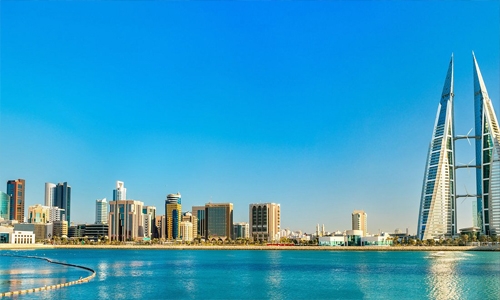Bahrain achieve 10th Sustainable Development Goal to reduce inequality
TDT | Manama
The Daily Tribune – www.newsofbahrain.com
Providing an effective virtual gateway to government information, presenting numerous accessible online services, and ultimately making life easier for its citizens and foreign residents. These are among the major goals the Kingdom of Bahrain has fulfilled so far as part of its full commitment to make inroads into ensuring a better and more sustainable future for all.
As a result, Bahrain has achieved the Sustainable Development Goal (SDG) number ten which aims at reducing inequality by adopting the “No One is Left Behind” motto in providing government services, notably via the Bahraini E-Government National Portal (hereafter, BE-GNP), where English and Arabic are used to offer services to Bahrainis and residents alike.
This was the conclusion of a study conducted by Dr Yasser Ahmed Gomaa, the associate professor of linguistics at the University of Bahrain. Dr Gomaa, who is keenly interested in the linguistic landscape of the Gulf region, has published the findings of this study in Cadernos de Linguagem e Sociedade, which is a Scopus indexed journal issued from the Center of Language and Society Advanced Multidisciplinary Studies in the University of Brasília in the Federative Republic of Brazil.
The study demonstrates that, according to the Internet World Stats, the Kingdom of Bahrain is one of the world’s most technically advanced countries for providing Internet access and using digital services, with a high rate of Internet penetration. It has achieved advanced positions in the United Nations report, preserving the top ranks for the fourth consecutive time since 2010.
Besides, it was positioned first in the Arab region within the e-Government readiness by presenting numerous online services to its citizens and residents. Recently, the Bahraini government managed to actually have an ideal vision of how the government should be run. It decided that information technology is the one thing that helps the country organise itself.
Therefore, it has put nearly all its government services online. Almost 99% of its services are easily accessible online (e.g., visas, licenses, permits, payments). Virtually, everything can be done digitally online. The Bahraini government institutions have expeditiously been moving a substantial part of their contact with the general public to the Internet via the BE-GNP, which is a gateway to its information and services.
Making life easier is the main goal of this e-government portal that represents a virtual public sector in which technologically mediated communication between the government and the general public. Allocating space and visibleness to certain languages on the BE-GNP reflects a symbolic structure of this virtual public sector. This seminal research thrusts into focus the systematic means of linguistic communication in Bahraini cyberspace and the significant correlation between the official Bahraini language and the other linguistic practices orbiting in the same space.
The research draws upon the theory of Spolsky and Cooper (1991) to investigate the languages used in the BE-GNP. The findings of the research indicate that public sector cyberspace is bilingual, as both Arabic and English are widely used. The English language figures prominently in the Bahraini cyberspace as all Bahraini legislations are displayed in English and Arabic.
The confluence of Arabic and English in the BEGNP underscores the importance of both languages as an effective means of communication and the attainment of the tenth goal of the SDGs. To further enhance communication and be a more effective virtual communicator, fostering the implementation of the SDGs and the motto of “no one is left behind”, the study suggested that the BE-GNP can offer information in nine languages, namely Arabic, Bengali, Chinese, English, Hindi, Kannada, Malayalam, Tagalog and Tamil.
These languages can be indexed with the images of flags coupled with a caption either in the country’s respective language in the following order (e.g., Arabic, English, Bengali, Malayalam, Tamil, Kannada, Hindi, Tagalog, Chinese), or in English (e.g., Arabic, Bengali, Malayalam, Tamil, Kannada, Hindi, Tagalog, and Chinese).
The suggested order is based on the results of Gomaa’s (2017) study which concluded that Bahraini Modern Standard Arabic is the language variety with the highest visibility in the Bahraini linguistic landscape, followed, in order of importance, by English, Bengali, Malayalam, Tamil, Kannada,
Dr Yasser Ahmed Gomaa
Related Posts


